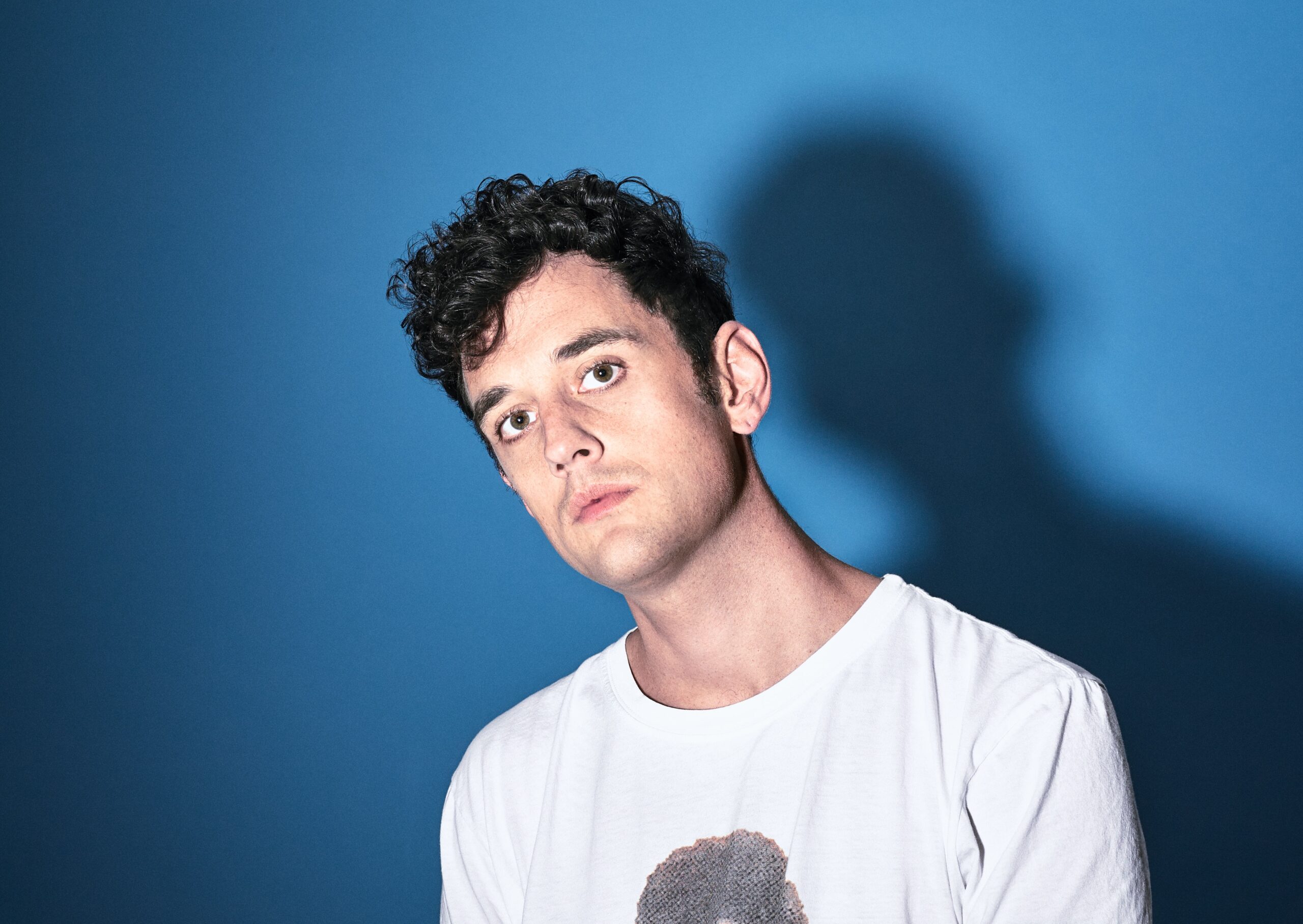
A Living Built on Music in Film, TV & Commericals
The following is a re-post of an interview first published in October, 2010.
Alex Lasarenko has been making his living at writing and recording music for over twenty years and currently runs his own studio making music for commercials, film and TV. You may or may not have heard of Alex but you have heard his music. He has placed music in ads by Volvo, Lockheed, Sierra Mist, Volvo and Mercedes Benz and on HBO, A&E, PBS, Court TV, TNT, Disney Channel and several feature films.
I met Alex in his studio Tonal Sound in the West 20s. I sat down, and before I even got a chance to start recording our conversation he said …
AL:
You have to believe that what you are doing is the right thing to do. Because there will be a ton of people telling you what you do is just shit… It really is a rollercoaster ride. Which is a problem if you don’t like rollercoasters.
Music Consultant:
So, bring me back to the beginning to how your career in music started.
AL:
I’m from Ohio from a family of working class immigrants, so there was nothing in my background that suggested that moving to New York was the right thing to do. I was getting a degree in piano performance. There was nothing in my cards that said I should move to New York and start a band.
Music Consultant:
But that’s what you did?
AL:
Yes I moved to New York and started off playing keys and writing all the music with a partner, Chris Ocasek, who would write all the lyrics. We started in a band around age 21 and got signed to EMI / Manhattan records by Bruce Lundevall. Bruce was probably the nicest gentleman and a great first person to meet in the music business. It was an excellent experience. Someone must have thought something of what we were writing. I think it was partly that and partly that EMI was looking to exploit Chris’ lineage (Chris is Rick Ocasek’s son).
Music Consultant:
What did you guys do up until the point of getting signed?
AL:
We were always writing music and playing out locally. Since I was classically trained and Chris wasn’t it was an interesting combination. Performing live was never my favorite thing. I used to get very nervous or sick.
Music Consultant:
So, touring musician was never your first pick of careers?
AL:
No, and the band was never set up to be like that it anyway, it was more like a studio project. The label wound up trying to take away what the band was and trying to promote the record we made as the Chris Ocasek project. I ended up suing the label. So, very early on I learned how to stand up for myself. I eventually won and got the courts to prevent the record from being released as something that it wasn’t.
Music Consultant:
Wow, I didn’t realize that.
AL:
It was an interesting experience. You can be this kind of flaky, creative artist, but ultimately, it is the business of art and the art of business. The two are intertwined no matter what you think, whether you like it or not.
Music Consultant:
So you were in your early 20s and you were signed for a year or a year and a half and I am guessing the lawsuit ended that?
AL:
Yes.
Music Consultant:
And that left you with a degree in piano performance and living in New York.
AL:
Yes, the producer of the record that Chris and I made was Jonathan Elias, and he got so sick of the whole label’s behavior he left, so I wound up doing the whole record myself with an engineer.
Music Consultant:
Was that your first time behind the board?
AL:
Yes. Jonathan left to do a Duran Duran record after the problems started to surface with the label, and I wound up producing the EMI record myself. Sometimes you get thrown into the deep end of the pool and you either sink or you swim. I always knew what I wanted to do musically, that came naturally so it was easy for me to get it done. When the lawsuit happened I wound up broke. I had a half an onion and I would literally sit in the lobby at Elias studios twelve hours a day waiting on their client meetings to be done so I could go in and eat something that was left over. That was how I ate for four, to five months.
Music Consultant:
So tell me about Elias studios.
AL:
Elias was a large commercial music house, at that time it was on its way down, as Jonathan has lost some interest in it. Jonathan’s brother told me if I was going to sit there all day I might as well write something, so I did. It wound up winning some business for the studio. I wound up writing several pieces of music that won business for the studio and after six months they made him the creative director of the company.
Music Consultant:
From eating leftover food in the conference room to creative director in six months — not bad…
AL:
Yea, it was $25,000 a year. For me, that was huge! It was amazing. I could afford socks; I could afford to eat and get a shared apartment. And I just worked my ass off.
Music Consultant:
So, your success was finally attributed to the songwriting, production and engineering skills you picked up along the way?
AL:
Yes. Working on and producing commercials was a great lesson, because I would do that from 9:30 in the morning until nine at night and then I would work on an album until early in the morning.
Music Consultant:
Did you ever have any thoughts of going back to band life?
AL:
No. After the lawsuit it was kind of over. But it was a great experience, because I learned that you can’t let people take advantage of you. And every time I have let me guard down or didn’t go with my gut instinct on that I have gotten burned.
Music Consultant:
One of the reasons I wanted to interview you is because one of the questions I get most often doing what I do is, “Can you get my music into film and TV and video games?” And you are someone who makes you living on creating custom pieces of music for those kinds of things. Do you have any advice for people on how to get their music placed in those kinds of situations?
AL:
Creating custom music and licensing tracks off an existing album are two different kinds of a businesses. Making an album is a full-time job, marketing it is a full-time job that is usually a thankless and unappreciated. But I think it would be hard. I don’t know what to tell you if you have one album’s-worth of material. Most people respond better to a body of work if you have a hit. That just makes it easier. When we license music it is because we have a library of material to choose from.
Music Consultant:
Does having more material help do you think?
AL:
I think content is king. If you have great success with a band and get traction then whoever you are working with will be able to get it in front of music supervisors. If you want a long-term relationship with music in movies and TV, then you have to meet and talk to as many music supervisors you can and get to know them and what kind of music they use. I’ll talk to anyone. And it’s interesting what you can learn when you are willing to talk to anybody.
Music Consultant:
How did you cope with the jaded attitudes you likely encountered when meeting music supervisors as a composer just getting in to the business? Is there any advice you can give about getting heard by these people?
AL:
I made a decision that I was going to devote five years to scoring a movie. What I had to do was create music that was worth being in a movie. I think that nobody would take me seriously unless I had music that they could hear visually – music that they could see being part of their project. Our studio tends to score entire films rather than just portions of films, which is rare. What I have noticed that music supervisors tend to work within a certain budget. Some do $25-$50 million budget films.
Music Consultant:
Of course, the music budgets for those films is considerably less…
AL:
Oh, considerably less. And then there are other music supervisors that do 1-10 million dollar films. I’ve noticed that when these music supervisors step up into the next category, they tend not to return your calls (laughs). I guess their feeling is that they are now at a higher level.
When it comes to licensing and music supervisors I think that anytime that you can talk to somebody and get your music in front of them … what’s the worst thing that could happen: They say no? You are going to hear “no” a lot in this business. And you have to be dumb enough to believe that they are wrong when they say it. I know that sounds stupid, but when someone says, “No,” you have to believe that they are wrong and you are right.
Music Consultant:
I am sure that you know a ton of people who you came up with and played with who are no longer in the business, because they either heard “no” too many times or couldn’t hack it and got straight gigs.
AL:
Well some of them actually went on to be pretty big too…
Music Consultant:
Sure. But looking at those who made it who have either continued to make a living at music or have gone on to be hugely successful, do you think there is a defining quality that leads to that enduring success?
AL:
I never chased the glamorous portions of the business so it was easier for me to stay in the business. But the people I know who fell away were not able to adapt they were unable to move past their niche. I know a woman who was one of the best oboe players in the world in my opinion and she no longer plays. She takes botanical photographs now.
Music Consultant:
So is it about the ability to adapt?
AL:
If you are the best oboe player in the world, and all of a sudden there are 3,000 plugins with great oboe sounds that don’t require a real person to come in for a session then…you’re in trouble. Ten years ago, I used to file 300 AFM contracts per year. Last year we did two. I’ve had to adapt too. You have to make do with what you have these days.
Music Consultant:
Do you have any other advice for artists trying to make a living?
AL:
Well, while I everyone was out doing coke in the ’80s, I was in the studio doing work during the day and making time for my own songwriting at night. It’s a lot of work to make a living this way. You can always write music on your own, but if you want it to blossom into something epic or beautiful or cinematic you have to keep the hamster wheel going. I would get pneumonia and still go to work, because work has to get done.
Music Consultant:
How did you know you were doing the right thing?
AL:
The best thing that happened to me was a corporate coach came into Elias and asked me with no one else around, “What do you want?” I gave him the corporate line, but he asked again, “No, what do you want?” What I wanted was to win an Academy Award for bet original score. And everything else fell away when I realized what I wanted.
Music Consultant:
You are lucky that your day job supports you in your goal.
AL:
Absolutely. You know, someone is always throwing shit at you but you have to always believe that what you are doing is worthwhile.
Music Consultant:
Your skill that kept you in the game has been your songwriting and applying that to corporate needs. How did some of your peers use their skills to stay in the game, was it session work or waiting tables or…?
AL:
Yes. It was session work. People that do custom studio work like I do… I mean everyone is having trouble but…I don’t really know, I do know some great players. We all have to do the odd job here and there. The motto at Tonal is we will talk to anyone, we will do anything.
Music Consultant:
Do you get calls for sound a-likes?
AL:
No, not so much anymore. Rates have come down, and most people can afford the originals. You also have tons of small studios looking to break into the business who will work for free.
Music Consultant:
Would you warn someone against doing tracks for free?
AL:
My feeling is if you are doing music for free, what do you think of yourself? This is a business and we provide a service. This whole notion that you have to demo for free for an online free when agencies are still charging their clients a lot of money. People often ask me, “Should I do this track for free?” And I always say, “Do you think you are worth nothing?”
Music Consultant:
Enough said about that…
AL:
It’s a nerve wracking moment in business right now. Everyone is walking around like a zombie. In the end, if you believe what you are writing is great it doesn’t matter what anyone thinks.
Music Consultant:
One final question: Would you do anything differently?
AL:
No. No regrets.
You can check out Alex’s work at http://www.tonalsound.com






